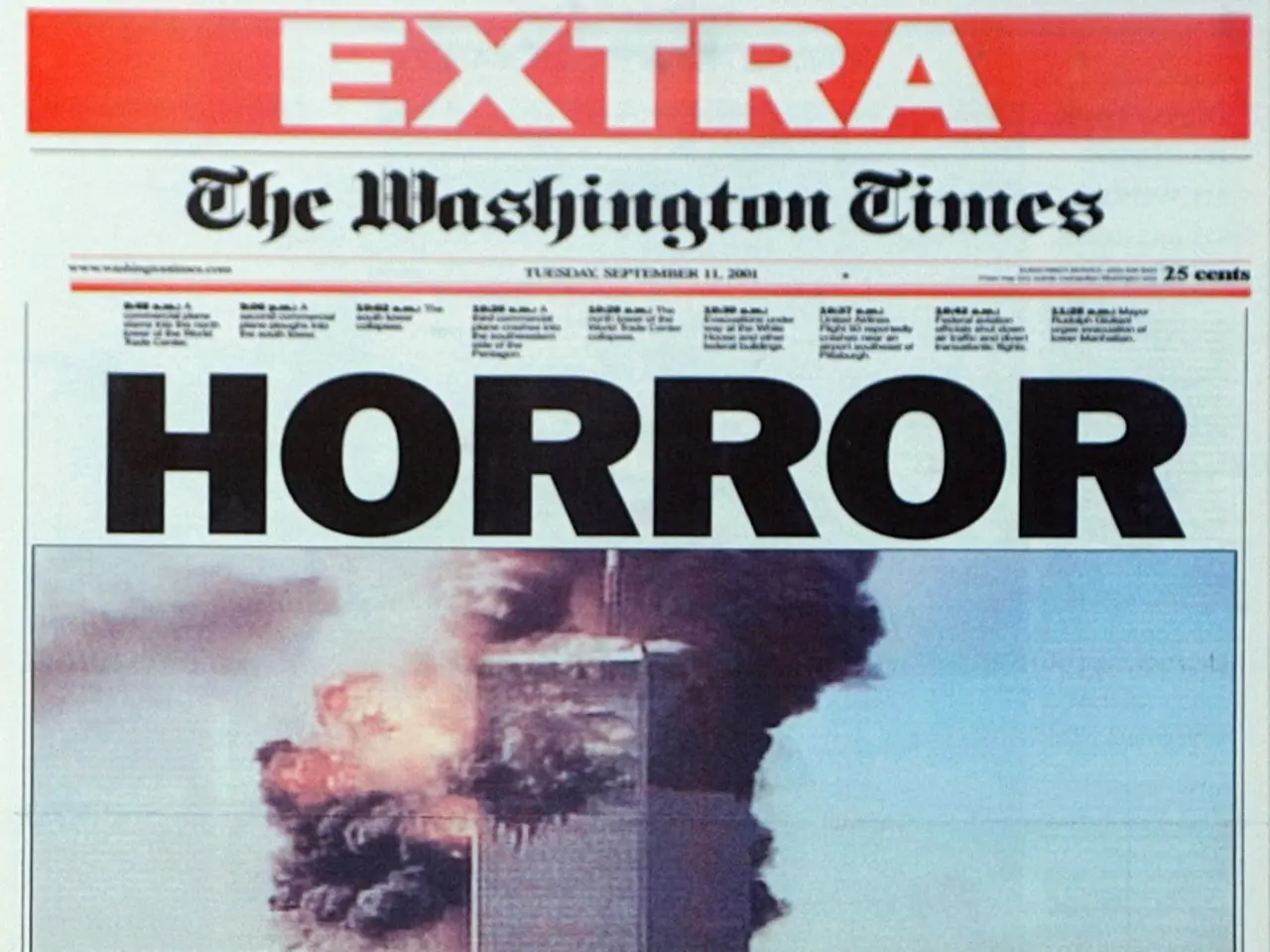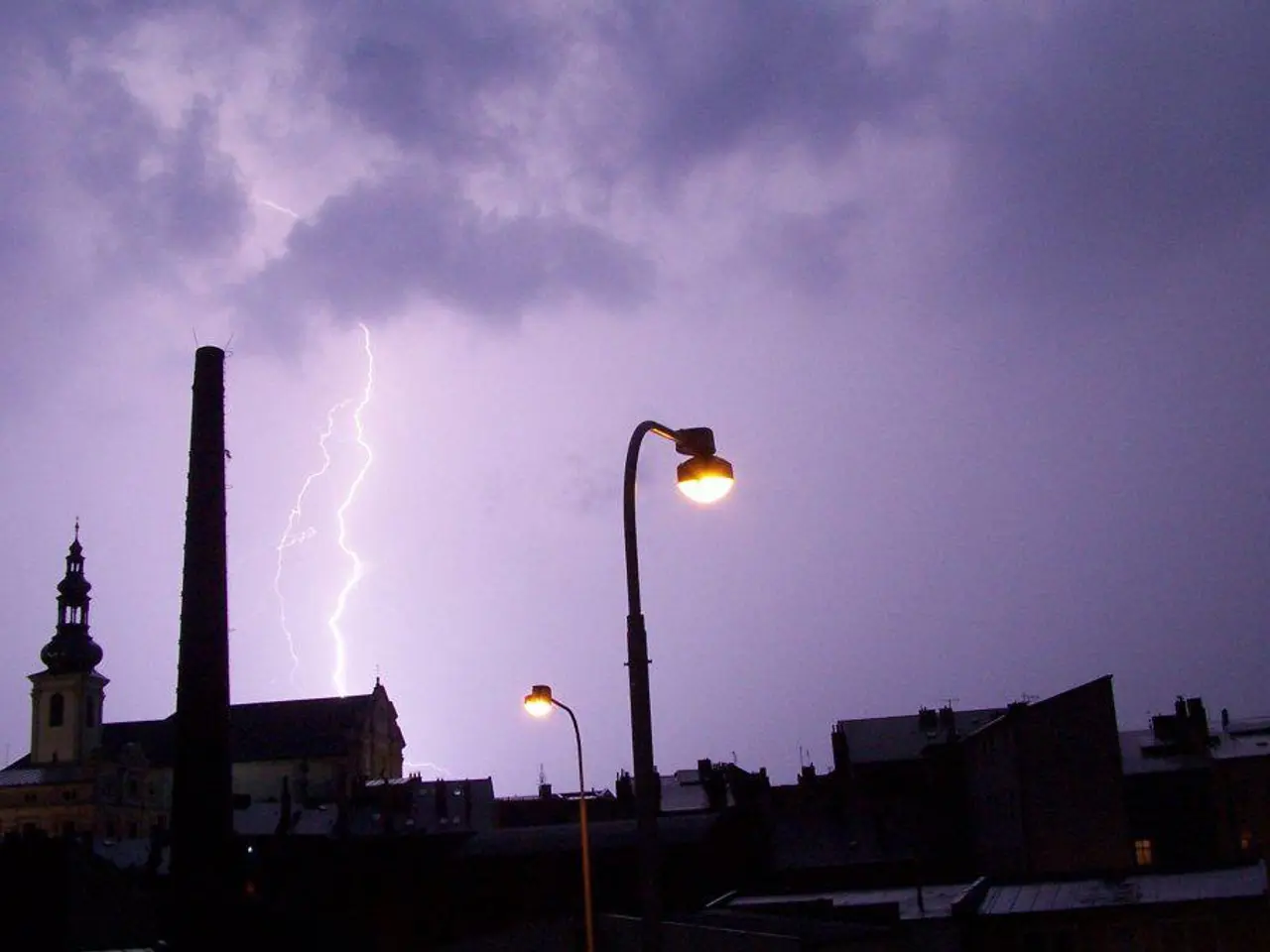Netanyahu, having celebrated his triumph over Iran, now confronts a critical choice regarding Gaza.
In a whirlwind of military action, Israeli Prime Minister Benjamin Netanyahu gleefully basked in the spotlight of Israel's victorious strikes on Iran. The surprise attack, collaborated with the Mossad spy agency, crippled Iran's nuclear facilities and took out key officials, demonstrating precision at its finest.
Following the initial success, Israel continued its offensive over Iran, declaring air superiority and focusing on Tehran's ballistic missile arsenal. In a government meeting on Wednesday, Netanyahu proclaimed, "We've scored a great victory in the campaign against an enemy who sought our destruction." And for the first time in years, the country stood behind its leader.
According to a survey from the Israel Democracy Institute, an astounding 70% of the country supported this decision, viewing Iran as Israel's greatest existential threat. Among Jewish Israelis, support skyrocketed to 82%.
However, as a ceasefire brought the conflict to an end, Israel found itself facing renewed battles in Gaza. A persistent foe, Hamas, has proven to be a tenacious adversary, utilizing guerrilla tactics to counter Israel's military might.
Netanyahu convened a meeting with senior Israeli officials to discuss the strategy in Gaza amid a heated internal government dispute. Some advocate for stepping up the war, while others argue the success in Iran offers a unique opportunity to achieve a comprehensive end to the Gaza conflict.
While Israel appeared to have emerged from the 12-day conflict with Iran as the dominant military power in the Middle East, this newfound strength also revealed the country's vulnerabilities. Iran's powerful ballistic missiles proved to be far more destructive than their Iraqi counterparts three decades ago, causing extensive damage and civilian casualties.
Despite the vaunted aerial defense system's success in intercepting the majority of incoming Iranian missiles, the Penetrators that slipped through sent shockwaves across Israeli cities. In some cases, even the sturdiest safe rooms couldn't protect civilians from the devastation.
The Iranian assault, particularly in the final hours leading to the ceasefire, exacted a heavy toll on Israel. Among the most affected was Beer Sheva, where at least four lives were lost when a residential building was obliterated by a ballistic missile strike. The force of the blast tore through surrounding buildings, leaving a trail of destruction in its wake.
The extensive damage to infrastructure is estimated to exceed $1.3 billion dollars, far surpassing the $730 million incurred during the 20-month war in Gaza. For years, Israel relied on the Iron Dome short-range air defense system to shield itself from rockets launched by Gaza. However, Iran's ballistic missiles set off red alert sirens across the entire country, demonstrating the limits of Israel's defenses.
The Rocket's Relentless Rain
During the 12 days of conflict, millions of Israelis hastily sought shelter as the Iranian missiles rained down from hundreds of miles away. While the number of incoming missiles decreased after the first few days, a higher percentage seemed to evade Israel's defenses, causing widespread damage and loss of life.
Yogev Kudady, a resident of Beer Sheva, was at home with his family when a salvo of missiles struck near their home. "Everything is broken, and the roof fell down," he recalled. "I looked back to the children and my wife, and I'm speechless. Until now, I've never been in shock like this."
Netanyahu's Gaza Dilemma
With the Iran conflict consuming the nation's attention, Gaza and its ongoing struggles went largely unnoticed. Despite the intensifying war, the fate of hostages held by Hamas found itself relegated to the sidelines.
The conflict in Gaza continued, even as Israelis focused their attention elsewhere. On the same day the ceasefire between Israel and Iran came into effect, seven Israeli soldiers were killed by an improvised explosive device in Khan Younis. This tragic incident marked one of the deadliest in recent months for the Israeli military.
As the Israeli Defense Forces demonstrated their ability to strike targets with precision and intelligence in Iran, the reality in Gaza remained a brutal, stagnant conflict. Imprecise and counter-productive tactics employed by Israel in Gaza contributed to growing anger among the Israeli public and increased international condemnation for the disproportionate number of civilian casualties.
In a rare display of dissent, ultra-Orthodox lawmaker Moshe Gafni called for decisive action: "We needed someone like Trump to come forward and say, 'Release the hostages, stop all these things, and return to a normal situation.'"
The Middle East is once again at a turning point. After the successful military operation against Iran, Netanyahu stands on the precipice of decision: whether to use the glimmer of victory in one conflict to bring an end to the brutal reality of another. The international community eagerly awaits his choice.
Enrichment Data:
- Israel targeted key Iranian nuclear facilities like uranium conversion infrastructure, several uranium enrichment sites at Natanz, the Arak heavy water reactor, research and development centers, and Iranian military leaders.
- The strikes significantly damaged Iran's nuclear program, delaying their potential ability to produce a nuclear core and bomb, while also curtailing ballistic missile production plans.
- Iran launched fewer missile attacks than anticipated, with most being intercepted by Israeli defenses.
- A reported agreement exists between Israeli Prime Minister Benjamin Netanyahu and US President Donald Trump to bring an end to Israeli military operations in the Gaza Strip within two weeks.
- Four Arab countries could potentially take over the administration of Gaza, altering regional dynamics.
- The aftermath of the operation presents a strategic window to expand Middle East peace agreements (Abraham Accords) involving countries like Syria and Saudi Arabia.
- The successful military operation against Iran's nuclear facilities and key officials has raised questions in the Middle East about the Israeli Prime Minister's strategy moving forward, as he stands at a critical juncture, deciding whether to use this victory to end the ongoing conflict in Gaza.
- Amidst the international community's interest in Israel's decision following the Iran conflict, the ongoing war in Gaza remains a pressing concern, with concerns over the disproportionate number of civilian casualties and growing international condemnation of imprecise and counter-productive Israeli tactics.








